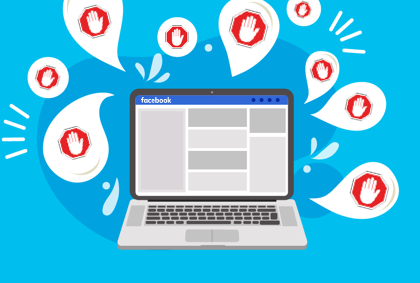Admiral, a firm that began with ad block recovery tools, announced the completion of a $19 million growth equity and debt investment round on Wednesday.
Harbert Growth Partners, the growth equity arm of Harbert Management Corporation, led the new investment round, which brings Admiral’s total capital raised since 2015 to $28 million. Bridge Bank also participated.
Admiral now refers to itself as a “visitor relationship management” tool, similar to customer relationship management (CRM) but designed for publishers.

CRM software is used by marketers and advertising to track the path of a potential customer.
READ MORE: Google Chrome Is Removing One Of The Most Popular Ad Blockers Available
However, most digital publishers do not have “customers,” in the traditional sense. They have readers, viewers, and visitors who demand a somewhat different acquisition strategy, according to Admiral CEO Dan Rua.
Admiral’s platform is intended to assist publishers in developing closer ties with their audiences, hence diversifying their revenue streams.
Saying Hello
The transition to visitor relationship management from ad block recovery – technology that detects when a user has ad blocking software switched on and delivers a message urging that person to whitelist the site instead – is reasonable, according to Rua.
The growth of privacy rules, combined with signal loss and a greater emphasis on user choice, has had an influence on the overall effectiveness of ad technology. Publishers cannot simply “track people and shoot ads,” Rua stated.

Publishers should not rely on paywalls to make up the revenue gap, which Rua compares to proposing marriage on the first date.
Retail Media’s Unselfish Growth Engine and YouTube’s Known Unknowns
Instead, he stated, “they actually have to stick their hand out to say hello and start some sort of relationship with that visitor” through conversational messaging, a strong brand identity, and (most critically for Admiral’s objectives) a purposeful road map for making those connections.
READ MORE: It Looks Like YouTube Has A Fix For Ad Blockers: Inserting Commercials Into Videos
In addition to Admiral’s existing solutions for ad block recovery, email registration, first-party data acquisition, contribution paywalls, and social paid subscriptions, the company has begun testing AI technology.
Admiral may use OpenAI’s GPT engine to create and A/B test messages based on a publisher’s tone, where a visitor came from (for example, a social ad), and the content on a website.

For example, an article about Steph Curry’s game-winning shot could prompt a visitor to learn more about his career or sign up for email alerts for future basketball-related stories.
Admiral also plans to invest some of its new cash in “Pub Brain,” a new tool that would function similarly to a page-specific chatbot or intra-publication search engine.
The goal, according to Rua, is to “deliver a smarter and better content recommendation to the visitor” that is directly fed into a publisher’s existing body of knowledge, rather than an external search via Google or an LLM approach.
READ MORE: It Has Been Reported That YouTube Limits How Long Videos Load For Users Who Use Ad Blockers
The majority of the funding, however, will be used to scale the firm as a whole, including hiring for its product team, go-to-market team, and “customer love” team (Admiral’s version of customer care).

The problem is that many publishers aren’t getting enough love, or at least not enough income to keep them going.
Meanwhile, gathering first-party data from site users, which is important in the face of signal loss, is far easier said than done.
Even if a publisher can persuade its visitors to login, requiring them to log in can lead to password fatigue. It’s difficult to maintain track of various logins and accounts.
So, this week, Admiral announced a partnership with The Trade Desk (which, incidentally, received money from Bridge Bank in 2014) to integrate with TTD’s single-sign-on tool, OpenPass, and UID2, its open-source identity solution.
According to Rua, the debut of OpenPass last year prompted numerous concerns from publishers about how to best encourage user authentication, which is why the combination with Admiral makes sense.
“Our team has thought so much about this topic that we already know best practices,” he told me. “We have an easy button on how journeys should operate.”
Radiant TV, offering to elevate your entertainment game! Movies, TV series, exclusive interviews, music, and more—download now on various devices, including iPhones, Androids, smart TVs, Apple TV, Fire Stick, and more.


